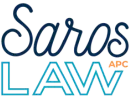Millions of Americans struggle with rehabilitating from drug addiction and alcoholism. Thankfully, the California legislature acknowledges this struggle and passed several laws that allow afflicted working Americans to take time off work to enter a drug and alcohol rehabilitation program. Alcohol and drug addiction rehabilitation leave is time off given to employees who wish to participate in an alcohol or drug rehabilitation program. This article will discuss what employees should know about California’s alcohol and drug rehabilitation leave laws.
California Labor Code
In California, if you choose to seek help for your drug or alcohol addiction, you are protected under Section 1025-1028 of the Labor Code. Employers with 25 or more employers must make reasonable accommodations to do so as long as it doesn’t pose an undue hardship on them.
While you don’t have a right to receive payment during this time, you can use any accrued sick days towards your time off. Additionally, the law prohibits your employer from discriminating against you for seeking treatment.
Employees may also request to use their paid vacation days, but employers can’t legally agree to this. Section 1026 also requires employers to make reasonable efforts to safeguard the privacy of their employees who wish to keep their treatment private. This also includes not disclosing that the employee has enrolled in a program.
What is reasonable accommodation?
The guiding phrase under this law is “reasonable accommodation.” The law doesn’t provide a definitive meaning for the term because what accommodations are considered reasonable may change among different workplaces. In the general sense, the accommodation must not impose an undue hardship on the employer. Some possible examples of reasonable accommodations include adjusting your work schedule, getting assigned to another position, or taking time off work using your vacation or sick leave days.
In most cases, reasonable accommodation won’t pose an undue hardship on the employer because it’s a natural workplace process. Anything beyond this would be at the employer’s discretion. They’re not legally required to agree to arrangements that can cause undue hardship on their part.
The California Family Rights Act
The California Family Rights Act (CFRA) is the Golden State’s version of the federal Family and Medical Leave Act which allows eligible employees to take up to 12 weeks of unpaid leave in the event of a serious health condition. By law, a serious health condition is any physical or mental condition that needs continued treatment and supervision from a healthcare provider.
Treatment in a drug or alcohol addiction program legally satisfies this condition so employees can obtain a doctor’s note for the same. Just like Section 1025-1028 of the Labor Code, leave under CFRA is unpaid, but they may request to use their accrued sick days and vacation days. In addition, employees can apply for wage replacement benefits with the Employment Development Department (EDD).
Unlike the Labor Code, these benefits are only applicable to employees who meet specific requirements. For instance, the employee must work for an employer with more than five employees and must be within a 75-mile radius. In addition, the employee must have worked 1,250 hours during the last 12 months prior to the request for the leave. If eligible, employers must then follow a medical certification process approved under CFRA.
What if an employer violates your rights?
The California Labor Code and CFRA both prohibit employers from discriminating against employees who’ve chosen to take time off for their treatment. Employers may not demote, wrongfully terminate, decline to promote, refuse to rehire, or suspend an employee for taking leave. The only exception is when you’re unable to perform your duties safely. In such cases, the employer will have to consider your safety and the safety of those around you first, for instance, a bus driver.
If you have reason to believe your employer is violating your rights under California’s Labor Code and CFRA, an employment lawyer can work with you on the best course of action. Attorney Alison Saros can help you seek damages for your injustice. Her team at Saros Law is dedicated to fully representing working Californians who have suffered discrimination in their workplace. Contact us at (310) 341-3466 to schedule your first appointment.





